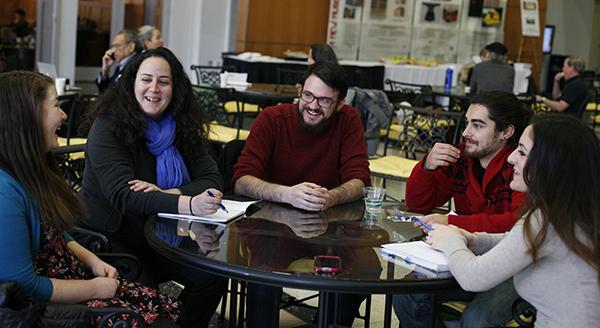The University will refuse to purchase GW merchandise from companies that use unsafe garment factories if they do not adhere to strict fire and building codes by next month.
GW joins dozens of colleges nationwide, including Georgetown and New York universities, in pressuring retailers to improve working conditions by signing an international accord on fire and building safety. The campaign launched after the deadliest garment factory incident in Bangladeshi history outraged labor rights activists last April, though it has only recently gained traction among universities.
The move comes after members of the Progressive Student Union spent months lobbying administrators to stop stocking the bookstore with materials from companies that use the unsafe factories. Members hand-delivered a letter to University President Steven Knapp asking to end GW’s relationship with those companies last month.
“We don’t want someone to die making a GW sweatshirt. We don’t want blood on our hands for whatever the next Rana Plaza might be,” freshman PSU member Will Block said.
More than 1,000 garment factory workers – primarily women – died in last April’s tragedy, known as the Rana Plaza building collapse. The factory crumbled after government officials ignored the owners adding three more floors to the structure, although it was only stable enough for five.
It comes after a string of fires and collapses in Bangladesh garment factories. Calls to action intensified in November 2012 after a fire in another garment factory killed 112 workers.
Camille Milton, a freshman member of the PSU who has met several times with Director of Campus Support Services Nancy Haaga, said GW’s public commitment will ensure that future retailers GW may use will not work with the factories either.
“It sends a message that we’re with the struggles of Bangladeshi people, and that they don’t have to be fearful for their lives,” Milton said. “Our apparel won’t be there when the next fire happens.”
Milton said Haaga and other administrators hadn’t heard about the building safety agreement before the students opened discussions.
University spokeswoman Maralee Csellar said as of Wednesday, no retailers GW works with make clothing in unsafe factories.
Garrett Strain, national campaign coordinator for United Students Against Sweatshops, said though the incident is a year old, colleges have been launching campaigns at a record-pace recently. GW is now the 19th college to require retailers to use safe factories.
“Every couple of days, a new school starts requiring licensors to use the Accords,” Strain said. “Momentum is building.”








